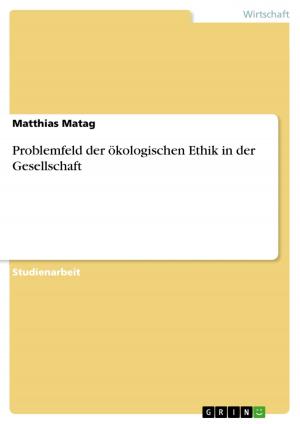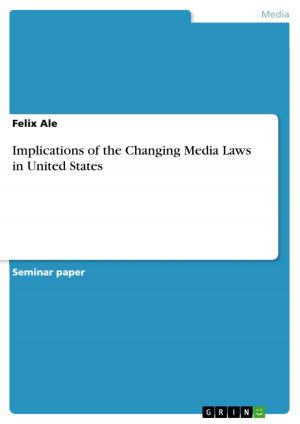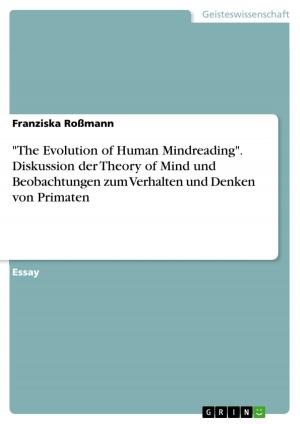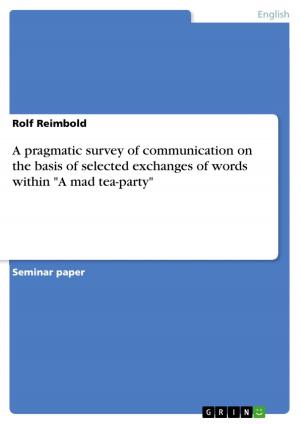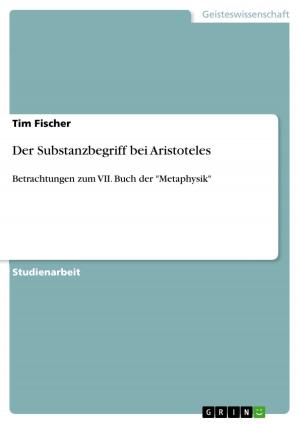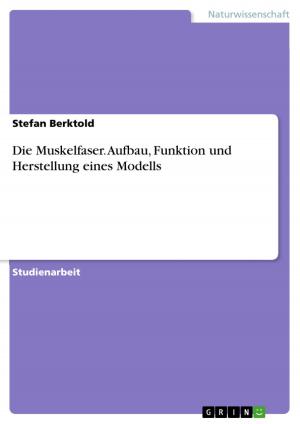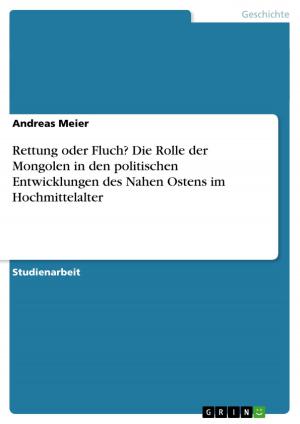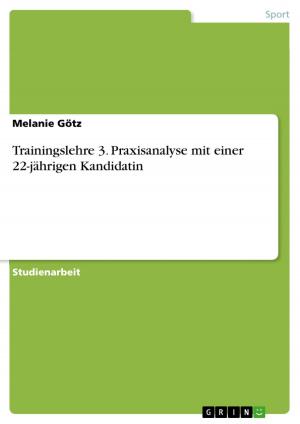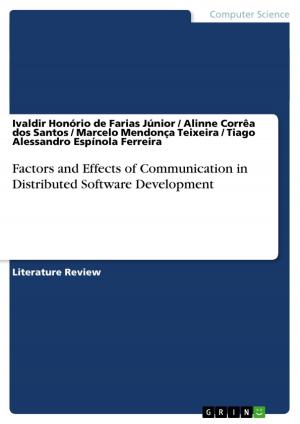The concept of Ecriture Feminine in Helene Cixous's 'The Laugh of the Medusa'
Fiction & Literature, Literary Theory & Criticism, British| Author: | Simon Wortmann | ISBN: | 9783656409427 |
| Publisher: | GRIN Verlag | Publication: | April 15, 2013 |
| Imprint: | GRIN Verlag | Language: | English |
| Author: | Simon Wortmann |
| ISBN: | 9783656409427 |
| Publisher: | GRIN Verlag |
| Publication: | April 15, 2013 |
| Imprint: | GRIN Verlag |
| Language: | English |
Essay from the year 2012 in the subject English Language and Literature Studies - Literature, grade: 1,7, Christian-Albrechts-University of Kiel, language: English, abstract: In the year 1975 the French feminist author Helene Cixous published an essay called 'The Laugh of the Medusa'. In it, she develops an entirely new theoretical concept with the aim of giving rise to feminist voice. The central ideas of Ecriture Feminine, literally 'women's writing', are going to be presented in this paper. In the first part, a brief description of Cixous's intellectual milieu is given in order to show the actual reason that led her to come up with a new notion of liberating women from patriarchy. In this context, an elaboration on poststructuralism, the philosophical current Cixous belonged to, follows. Closely related to that is the authors skepticism towards Sigmund Freud's language philosophy. Specifically speaking, Freud's statements on the penis envy theory. Primary attention is paid to the theory of phallocentrism, which can be seen as one of the main reasons for Cixous's writings. For a better understanding of this term, the concept of logocentrism is also explained, as well. Logocentrism can be seen as a pillar of the theory of phallocentrism and therefore it deserves to be mentioned at this point. In the second part, we deal with the question of what is actually meant by 'women's writing'. Furthermore, we will analyze which role the female body and sexuality plays in this context. This excursion is highly interesting as it is crucial for the understanding of her concept. Since the female body is considered a key for women to resist masculinist thinking and, hence, the systematic repression of women. Apart from that, we try to show whether features of Ecriture Feminine are evident in the 'The Laugh of the Medusa'. Moreover, a different viewpoint on Cixous's theory is shown in the chapter 'Criticism' in which arguments for and against her theory are shown. In point five 'Conclusion' the main aspects of this paper are summed up. When writing this paper, the main source of information were essays on women's writing and French feminist writing, dating from 1987 to 1986. Besides, secondary literature on literary and cultural theory as well as feminist practice and poststructuralist theory were used. Recent research on Cixous's work, however, could not be found. The only source dealing particularly with her writings dates from 1991.
Essay from the year 2012 in the subject English Language and Literature Studies - Literature, grade: 1,7, Christian-Albrechts-University of Kiel, language: English, abstract: In the year 1975 the French feminist author Helene Cixous published an essay called 'The Laugh of the Medusa'. In it, she develops an entirely new theoretical concept with the aim of giving rise to feminist voice. The central ideas of Ecriture Feminine, literally 'women's writing', are going to be presented in this paper. In the first part, a brief description of Cixous's intellectual milieu is given in order to show the actual reason that led her to come up with a new notion of liberating women from patriarchy. In this context, an elaboration on poststructuralism, the philosophical current Cixous belonged to, follows. Closely related to that is the authors skepticism towards Sigmund Freud's language philosophy. Specifically speaking, Freud's statements on the penis envy theory. Primary attention is paid to the theory of phallocentrism, which can be seen as one of the main reasons for Cixous's writings. For a better understanding of this term, the concept of logocentrism is also explained, as well. Logocentrism can be seen as a pillar of the theory of phallocentrism and therefore it deserves to be mentioned at this point. In the second part, we deal with the question of what is actually meant by 'women's writing'. Furthermore, we will analyze which role the female body and sexuality plays in this context. This excursion is highly interesting as it is crucial for the understanding of her concept. Since the female body is considered a key for women to resist masculinist thinking and, hence, the systematic repression of women. Apart from that, we try to show whether features of Ecriture Feminine are evident in the 'The Laugh of the Medusa'. Moreover, a different viewpoint on Cixous's theory is shown in the chapter 'Criticism' in which arguments for and against her theory are shown. In point five 'Conclusion' the main aspects of this paper are summed up. When writing this paper, the main source of information were essays on women's writing and French feminist writing, dating from 1987 to 1986. Besides, secondary literature on literary and cultural theory as well as feminist practice and poststructuralist theory were used. Recent research on Cixous's work, however, could not be found. The only source dealing particularly with her writings dates from 1991.

